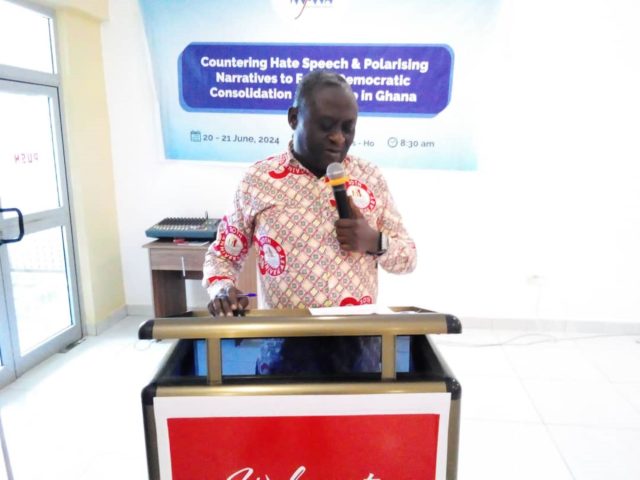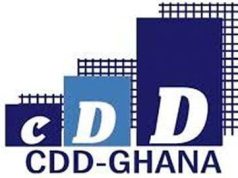Mr. Ken Kponor, the National Commission on Civic Education (NCCE) Director for the Volta Region, emphasized the critical role of media organizations in responsibly publishing news.
He cautioned that media outlets must avoid inadvertently amplifying fake news by repeating false claims in headlines or breaking news alerts. Instead, he urged them to focus on debunking false information.
Mr. Kponor made these remarks while addressing journalists in Ho at the start of a two-day training session organized by the Media Foundation for West Africa. The event was held on Thursday, June 20, and themed “Countering Hate Speech and Polarising Narratives to Foster Democratic Consolidation and Peace in Ghana.”
He stated that a hallmark of a good media house or journalist is the ability to make swift corrections. If misinformation is published, media outlets should issue corrections promptly and prominently to prevent the spread of false information. He stressed the media’s crucial role in shaping public opinion and disseminating information, especially during elections.
He highlighted the growing challenges of hate speech, misinformation, disinformation, and political propaganda, particularly with the increasing number of social media users. To address these issues before, during, and after the 2024 elections, he proposed several strategies for the media.
“First and foremost, media organizations should prioritize fact-checking and verifying information before publishing or airing stories. Fact-checking helps correct false information and prevents the spread of misinformation,” he said.
Secondly, he suggested that media outlets should be transparent about their sources and reporting methods. Labeling news pieces, analyses, and sponsored content can help the audience differentiate between news and commentary. He also emphasized the importance of responsible reporting, urging journalists to adhere to ethical standards and avoid sensationalism or clickbait headlines that can amplify misinformation.
“Responsible reporting involves providing context, multiple perspectives, and accurate information to the public,” he added. Mr. Kponor also recommended that media organizations collaborate with fact-checking initiatives, academic institutions, and other media outlets to verify information to combat misinformation.
He stressed the importance of engaging in media literacy programs to educate the public on critically evaluating information sources and identifying misinformation. Media literacy programs can empower individuals to navigate the vast amount of information available online.
Finally, he urged journalists to uphold high journalistic standards, promote transparency, and empower the public with accurate information to foster an informed electorate and ensure peaceful elections in December. “In conclusion, let me remind you that this year, we will head to the polls once again to elect our Members of Parliament and President.
In our part of the world, elections come with a lot of tension and, in some cases, threaten our peace,” he noted.
The training session, attended by 25 selected journalists from the Volta and Oti Regions, was organized by the Media Foundation for West Africa (MFWA). The aim was to reduce incidents of hate speech and other polarizing and extremist narratives that undermine social cohesion, peace, and stability in the context of the 2024 general election.















